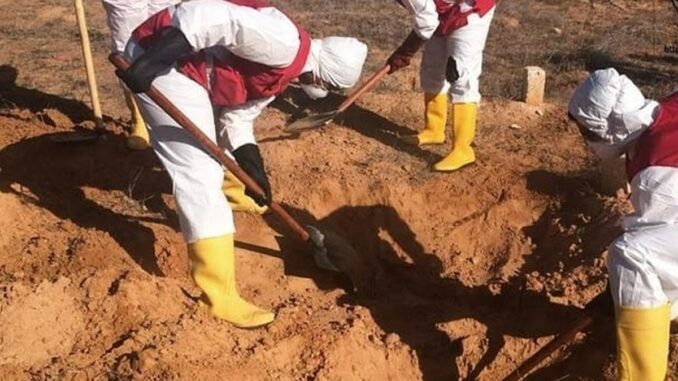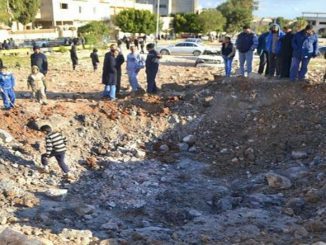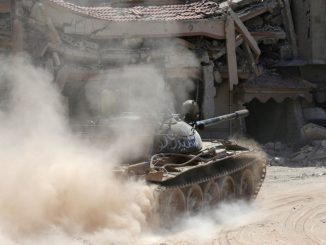
Libyan authorities Monday found two new mass graves in the city of Tarhuna, northeast of the capital Tripoli, Anadolu Agency reported.
A statement by the General Authority for Research and Identification of Missing Persons said the two graves were discovered in Mashru’a Alrabet area in Tarhuna, a former stronghold of eastern warlord Khalifa Haftar’s forces.
The statement did not specify how many bodies were exhumed from the two graves.
According to Libyan official sources, Haftar’s forces and affiliated militias committed war crimes and acts of genocide in the period between April 2019 and June 2020.
Since June, following the defeat of Haftar’s forces in the western areas of Libya, the Libyan government found at least 300 dead bodies in mass graves in Tarhuna and south of Tripoli.
On Feb. 5, Libya’s rival political groups agreed in UN-mediated talks to form an interim unity government to lead the country to elections this December, designating a prime minister, Abdul Hamid Dbeibeh, and tasking him with forming a new government.
On 10 March, Libya’s new interim government, the Government of National Unity (GNU), won the parliamentary vote of confidence and was sworn in on 15 March. Its agenda is already set in the roadmap drawn up by the Libyan Political Dialogue Forum (LPDF) last November.
New Prime Minister Abdulhamid Dbeibeh and his team have plenty of complex tasks ahead of them. They have already, at least in theory, unified the divided executives. Libya, until late March, was divided between two competing governments – one in Tripoli and a rival one in the east of the country.
The GNU is supposed to focus its energy and resources on two tasks, among others – holding smooth and fair elections by the end of the year and improving the living conditions of the people. However, there exists doubts, risks and hopes.
While people’s expectations are high, the issues facing the government are complex. Nonetheless, most Libyans would settle for less, if only the promise of elections is kept. Having been through many wars, a political impasse, economic hardships, deteriorating government services, corruption and a collapsing healthcare system at the time of a pandemic, most people can tolerate difficulties as long as they know that the transitional period will end by the 24 December elections.
Libyans hope that the move will end years of civil war that have engulfed the country since the ouster and killing of strongman Muammar Gaddafi in 2011.



